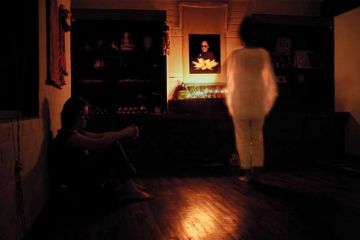In 1993
a 15-year-old came to Bombay. A deal had been struck somewhere, a price
had been put on the body, and she had been delivered from the hills of Nepal to
Kamathipura, a place that does not care for a return address. For `40,000, Ambika Jeroo Nepali,
was bought by one of the brothels in Mumbai’s red light area. It’s a price that
she repaid for the next 11 years, the first five of which her earnings went
entirely to the brothel owners and pimps. She had to earn back the amount s





